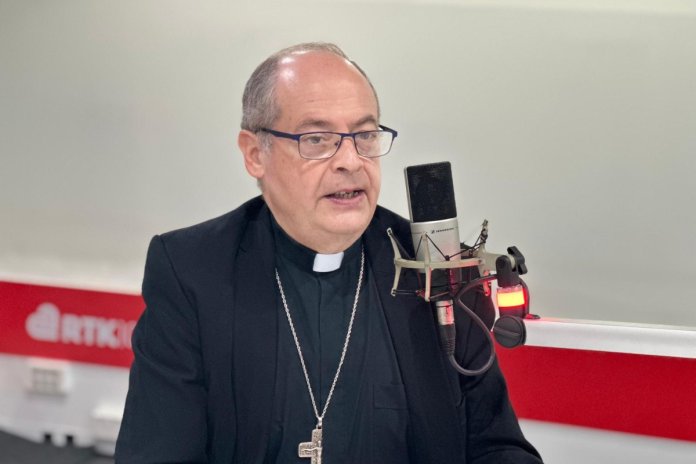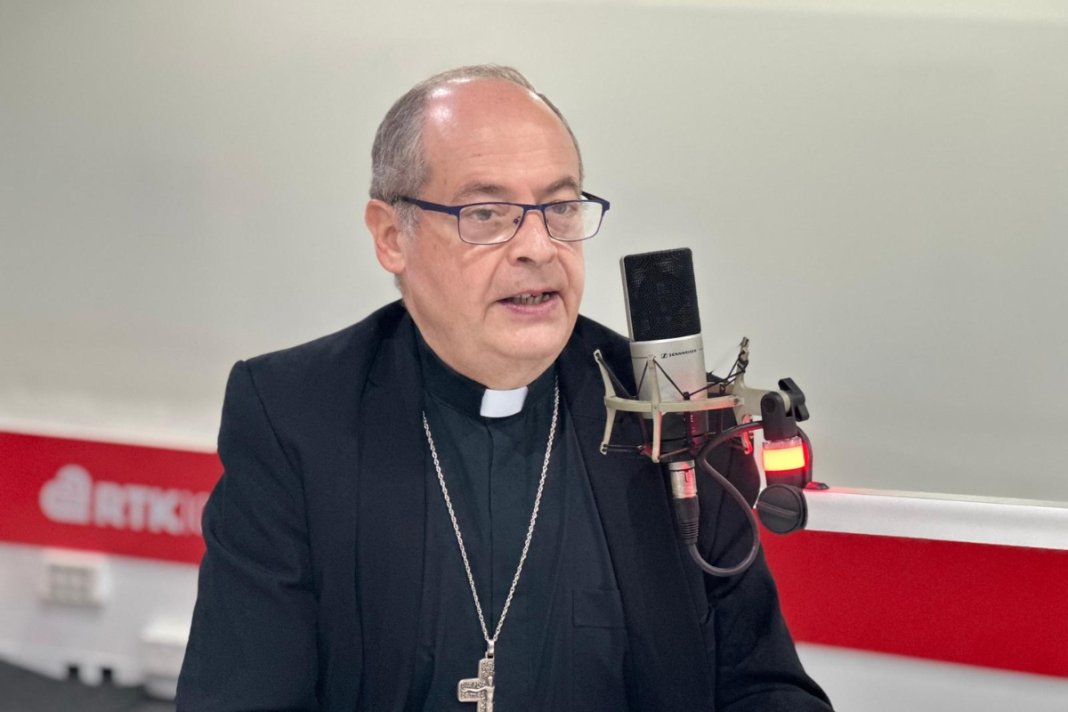
Auxiliary Bishop Joseph Galea-Curmi has pointed to what he describes as a “great contradiction” in the government’s approach to end-of-life issues, as a White Paper on voluntary assisted euthanasia comes just weeks after the publication of a national suicide prevention strategy.
Speaking this morning on RTK103, Bishop Galea-Curmi urged the public to closely examine the recently published consultation document, which proposes that euthanasia could be carried out with “the express, free and documented will of the person suffering from a terminal and irreversible illness.”
“If you are making a strategy for suicide prevention, you do not issue a White Paper that says that assisted suicide is a solution,” the bishop said, highlighting what he sees as inconsistency in policy. He noted that the document itself states “it should be the patient himself who carries out the final procedure that leads to the end of his life,” which he argued “shows in black and white that this is suicide.”
The bishop also drew attention to what he termed another contradiction in the White Paper – that “the termination of life by voluntary euthanasia should be considered a natural death after the board has verified and certified that all legal procedures have been followed.”
Drawing on personal experience, Galea-Curmi spoke emotionally about how his own family approached his mother’s illness and death. “I understand what people feel and say, because my siblings and I experienced it with our mother’s illness,” he said, adding that they made a conscious choice to help their mother not feel like a burden, but instead “surround her with love and affection until the end.”
The bishop stressed that the value of human life does not depend on a person’s health status, emphasising that “the value of a healthy person’s life is not greater than that of a sick person.”
He expressed concern that terminally ill patients often feel they are a burden on those around them, even without intending to. “It is natural that in this circumstance, one would think that the end of life could be seen as a solution,” he acknowledged, noting that patients may feel internal pressure or worry about being a burden on relatives or society.
The White Paper does contain provisions aimed at preventing coercion, stating that “any person who exerts pressure on the patient to choose the path of voluntary euthanasia will be guilty of a crime that leads to effective imprisonment.”
Bishop Galea-Curmi advocated strongly for palliative care as an alternative approach, praising the work of Hospice Malta in providing holistic support that goes beyond medical intervention to include moral and spiritual care. Through such comprehensive support, he said, “the sick person is surrounded by so much care and love until the last moment” and pain can be “radically reduced.”
He emphasised that the Church does not condemn individuals who might choose euthanasia, stating clearly: “The Church does not reject anyone.” However, he added that “if you are making a conscious and free choice to undergo euthanasia, you are choosing to cut yourself off from certain things.”
Source: Newsbook.com.mt





